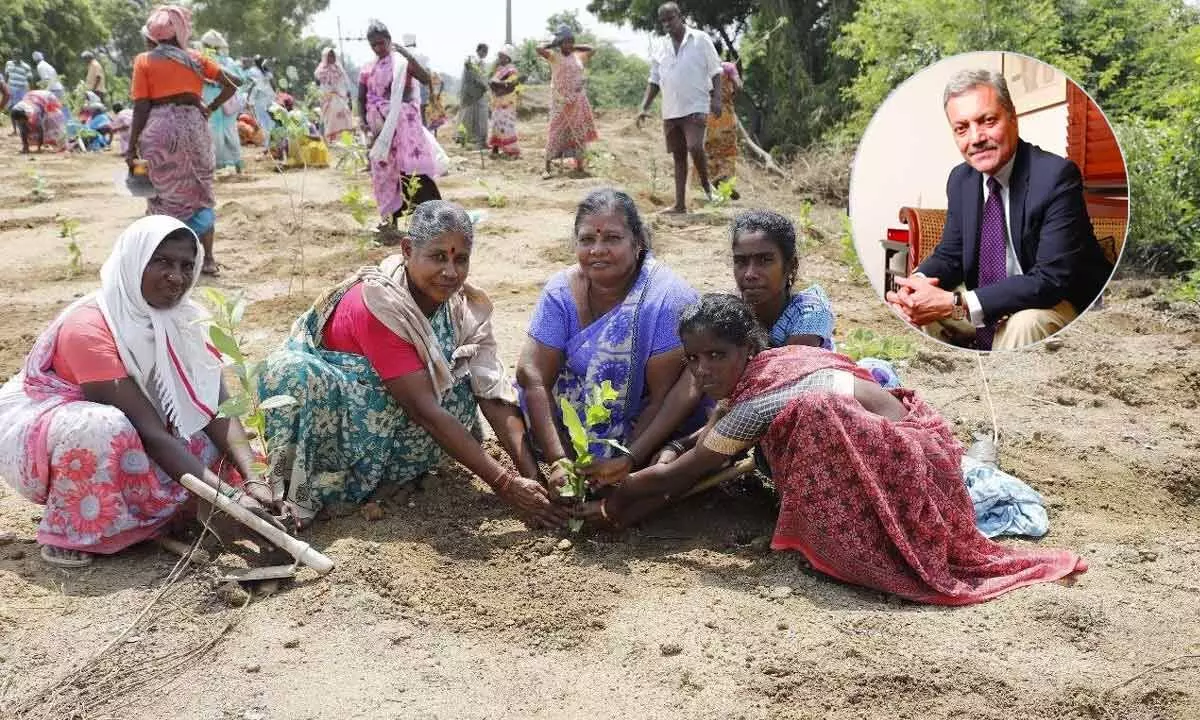Discover how Tamil Nadu’s marginalised’ Irula tribe’ is discovering agency and self-sufficiency through plantation activities

On International Day of the World’s Indigenous Peoples, Pradip Shah, co-founder of Grow-Trees.com shares how afforestation is empowering the poverty-stricken tribe
The International Day of the World's Indigenous Peoples (9 August) annually celebrates indigenous communities and their rooted knowledge of the natural world. This year's theme, 'Indigenous Youth as Agents of Change for Self-determination’ is particularly relevant at a time when indigenous land and forest rights are being threatened by environmental degradation, industrial activities, deforestation, mining and more. Pradip Shah, the co-founder of Grow-Trees.com believes, empowering these communities to care for natural resources is not just essential to preserve biodiversity, but will also help them preserve their own reserves of indigenous wisdom.
He says, "We have been working with the Irula community in Tamil Nadu which despite being one of the earliest inhabitants of the Indian subcontinent and recognised as a Scheduled Tribe has been impacted deeply by poverty despite their contributions to the environment, and culture. With changing times, their traditions of folklore and traditional vocations including capturing snakes, harvesting honey, and catching rats have been undermined, leaving no other option to them but to work as daily wage labourers."
Grow-Trees.com's completed the plantation project in Villupuram, Tiruvannamalai, Chengalpet, Kancheepuram, and Thiruvallur districts of Tamil Nadu has helped the tribe to regain a sense of agency and economic independence. Pradip explains, "This is a socioeconomically poor tribe and like all vulnerable communities, is impacted severely by extreme climate events. However, tree plantation and afforestation not only engage them in gainful employment but also heals their environment, enhance the region's biodiversity and green cover, and improve their quality of life. As stakeholders in their own ecological well-being, the Irulas are taking care of saplings in the nursery, and helping in their plantation and maintenance. These rehabilitated degraded forest resources are also offering a large number of Irula women sustainable livelihoods.”
Over 294,000 trees compatible with the local ecology have been planted by Grow-Trees.com as they have a higher likelihood of surviving. These include Guava, Amla, Jackfruit, Pongame tree, Indian tulip, Teak, Kumzhi/ Gamhar, Neem, Naval, Tamarind, Coral Bean Tree and Rain Tree etc. "Many of these trees yield produce that is rich in nutritional and medicinal value and others offer timber and leaves for fodder. They are also helping in improving the water table, checking topsoil erosion, and increasing carbon sequestration. I truly hope that in keeping with this year's theme, 'Indigenous Youth as Agents of Change for Self-determination', the next generation of the Irula tribe will plant many more trees and grow towards the future while honouring their roots and indigenous heritage."











